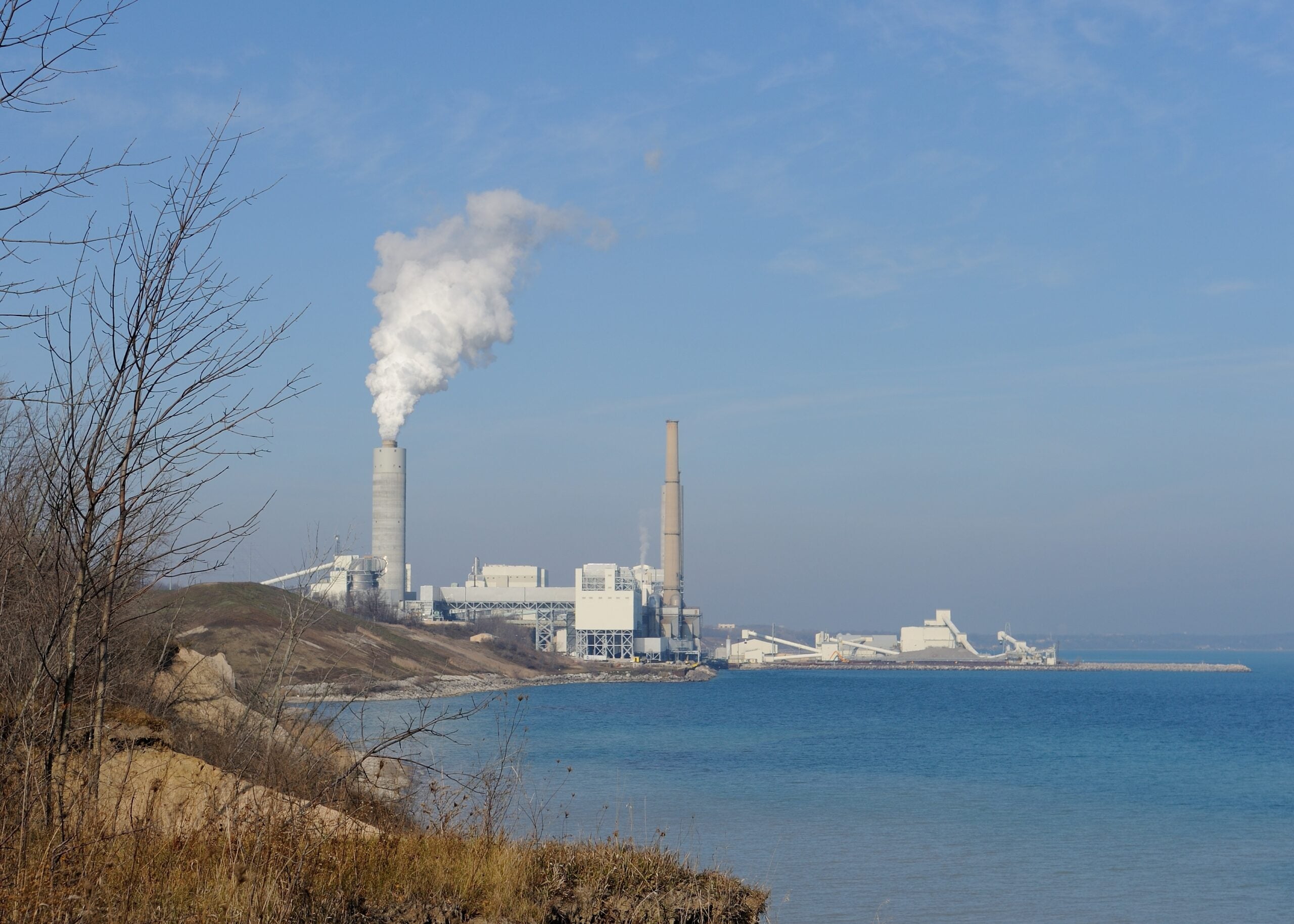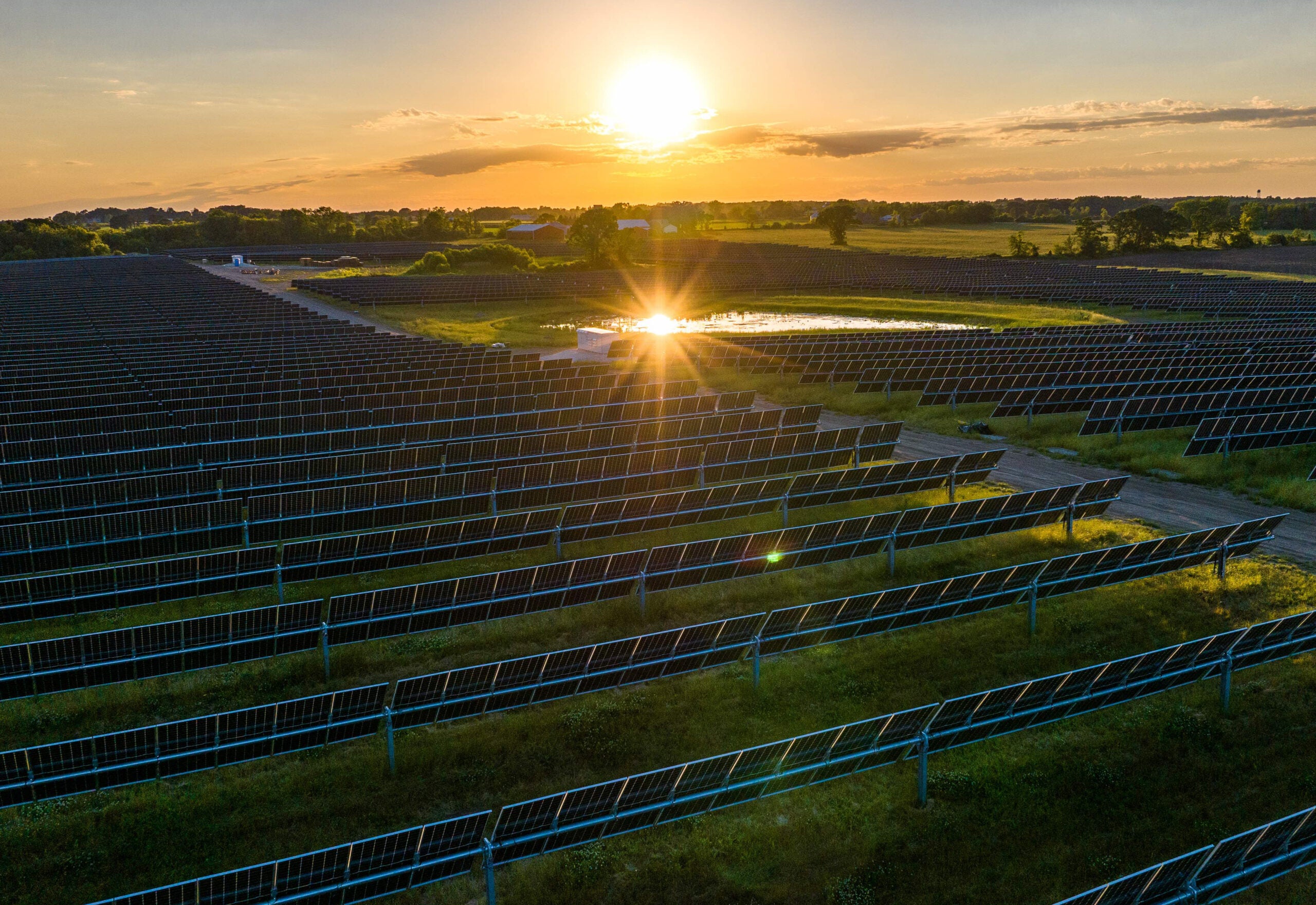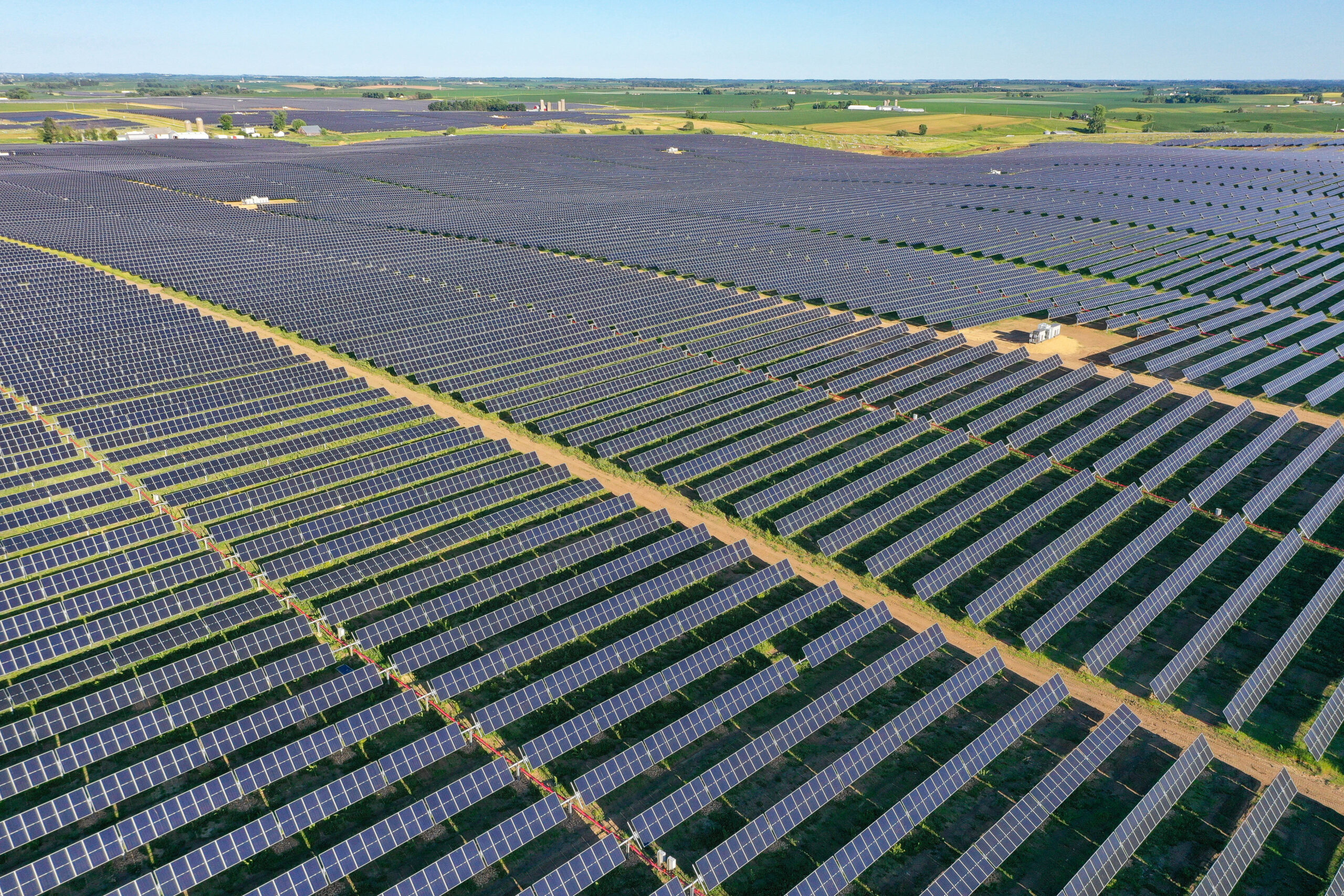Several Wisconsin coal plants will remain online years longer than planned as supply constraints caused by COVID-19 delay plans to transition away from fossil fuels, two of the state’s largest utilities announced Thursday.
Madison-based Alliant Energy and Milwaukee-based We Energies said those delays and economic challenges will postpone operation of clean energy projects. That means it will take longer for renewable energy to replace coal-fired power plants, requiring utilities to rely on fossil fuels longer than anticipated.
Utilities also expressed concerns about maintaining reliable power as the regional grid operator has said 15 states, including Wisconsin, could see an energy shortage of 2,600 megawatts next year.
Stay informed on the latest news
Sign up for WPR’s email newsletter.
Alliant previously announced plans to shut down its 400-megawatt Edgewater coal plant in Sheboygan by the end of this year and its 1,100-megawatt coal plant in Columbia County by 2025. Now, the utility said Edgewater will continue to operate until mid-2025 while Columbia is now slated to retire by mid-2026.
“That adjusted timing allows our company some flexibility beyond 2022 to manage that regional capacity and (those) supply chain challenges as we move forward with adding that solar and other resources to diversifying that energy mix,” said David de Leon, president of Alliant’s utility in Wisconsin.
Alliant co-owns the Columbia plant with Wisconsin Public Service and Madison Gas and Electric.
We Energies announced Thursday that plans to shut down its coal-fired units at the South Oak Creek coal plant in Milwaukee County will be delayed by a year. The utility now plans to retire two units by May 2024 and its last two units by late 2025.
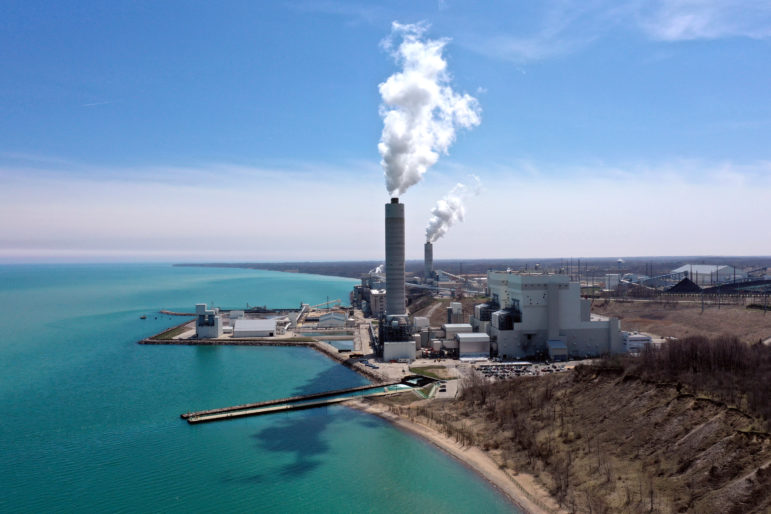
“The decision to postpone the retirement dates for these units is based on two critical factors: tight energy supply conditions in the Midwest power market and supply chain issues that will likely delay the commercial operation of renewable energy projects that are currently moving through the regulatory approval process,” Scott Lauber, president of We Energies, said in a statement.
We Energies is investing $1 billion through next year on projects that include the second phase of the Badger Hollow solar farm in Iowa County and the Paris solar and battery project in Kenosha County. A We Energies spokesperson said they’re confident those projects will go online next year, but they’re less certain about projects still awaiting approval.
If We Energies retired plants on schedule, the utility argued it would be more costly to make up for that shortfall in power generation by buying power on the market.
“Not only might that not be there because there could be capacity issues, but even if it was there, it’s going to be very, very expensive,” said Brendan Conway, We Energies spokesperson. “Based on current prices, literally tens of millions of dollars more a year to buy (power) on the market as opposed to running the plant on those peak days.”
WEC Energy Group, the parent company of We Energies, has a $3.5 billion plan to retire 1,600 megawatts of fossil fuels and replace that with around 1,400 megawatts of power from wind, solar and battery storage. Wisconsin’s largest utility company has said customers are expected to save more than $1 billion over the next two decades as it invests in renewables and shifts away from coal.
Alliant is spending around $1.5 billion to build a dozen projects that will provide nearly 1,100 megawatts of solar power in Wisconsin. The utility planned to finish those projects by the end of next year to replace its coal plants. Wisconsin Power and Light, Alliant’s utility in Wisconsin, anticipated its Clean Energy Blueprint would save customers between $2 billion and $6.5 billion over the next 35 years.
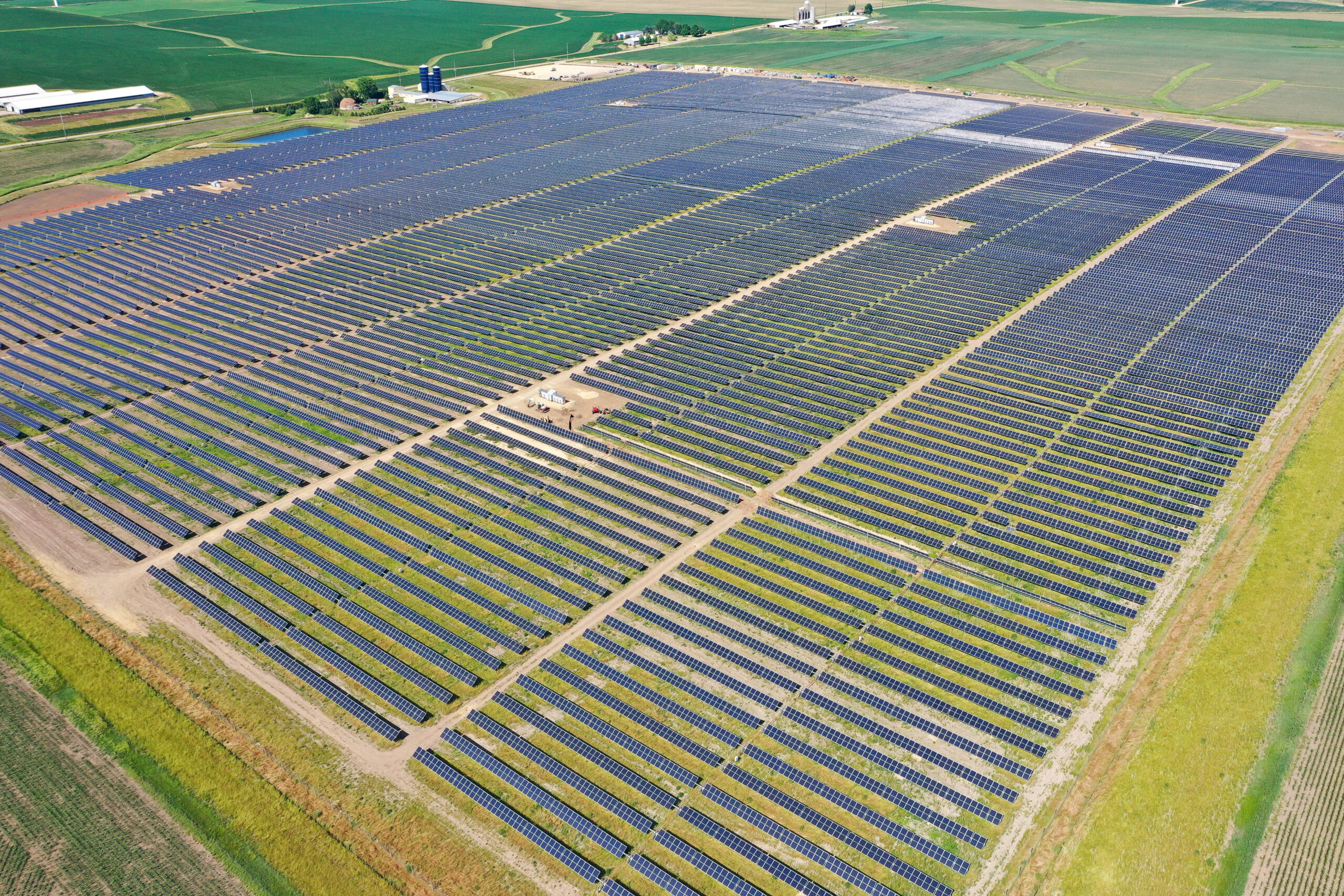
Tom Content, executive director of Wisconsin’s Citizens Utility Board, said utilities are likely to see increased fuel costs by keeping plants online longer at a time when energy costs are soaring.
“Both coal prices and natural gas prices are up,” said Content. “Coal prices are up because the railroads traditionally tack on surcharges anytime the price of diesel escalates.”
Content said that may put pressure on rates as We Energies is seeking an 8 percent rate increase tied to its clean energy transition.
The Citizens Utility Board, a ratepayers’ advocacy group, said they’re already exploring ways to find savings for customers that may include an innovative financing agreement with the utility to pay off investments made in coal plants. Conway of We Energies said they expect those concerns to be covered as part of regulators’ review of its proposed rate hike.
Meanwhile, Alliant said it will need to make investments to keep its plants operational, but the utility claims those will be offset by the energy and capacity provided in the short term.
“While we do incur cost of fuel for those facilities, it also provides a benefit to the customers in the energy we sell to the market,” said Michael Greiveldinger, Alliant’s director of regulatory and wholesale customer affairs. “That, we anticipate, will more than offset it in the near term, and help to provide a little bit more (cost stability) for customers overall.”
Wisconsin environmental groups have called on utilities to speed up their transition away from fossil fuels in their power mix to combat climate change. Brett Korte, a staff attorney with Clean Wisconsin, said they understand the reasons for pushing back retirement of coal plants. Even so, he said the move is disappointing.
“We understand the acute factors, regional capacity concerns. It obviously has to be addressed, and supply chain issues aren’t within their control,” said Korte. “But the failure for us to transition off fossil fuels quickly enough predates any of these current challenges.”
He noted coal plants raise environmental justice concerns since marginalized communities are more likely to live by and suffer the effects of air pollution. Korte also highlighted Wisconsin lags far behind neighboring states in development of renewable energy.
Hundreds of scientists and world leaders have urged nations to take steps to reach net-zero carbon emissions by 2050 to avoid the worst effects of climate change. A United Nations panel issued a report last summer that the world is already set to exceed levels of warming they hoped to avoid, issuing a “code red” for humanity.
Alliant intends to eliminate coal from its power mix by 2040, and the utility said it’s on track to cut carbon emissions in half from 2005 levels by the end of the decade. We Energies’ parent company has pledged to drop coal by 2035, and the utility said it’s committed to reducing emissions 80 percent from 2005 levels by 2030.
Editor’s note: The Citizens Utility Board is an underwriter of Wisconsin Public Radio.
Wisconsin Public Radio, © Copyright 2025, Board of Regents of the University of Wisconsin System and Wisconsin Educational Communications Board.

